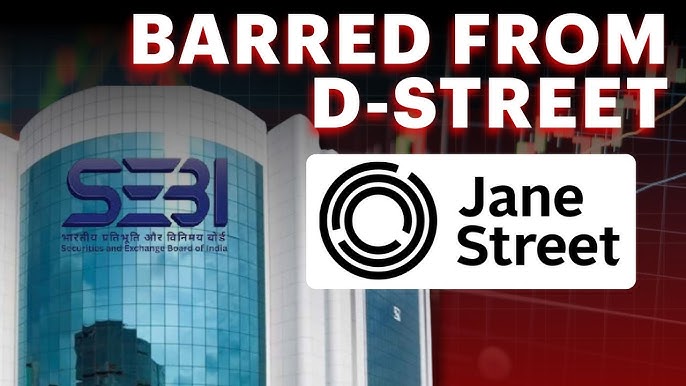 Image Source: Youtube
Image Source: Youtube
India's market regulator, the Securities and Exchange Board of India (SEBI), has also widened significantly its investigation of Jane Street, one of the world's largest quantitative trading houses, after barring the group and its affiliates from all transactions in the Indian securities market. This comes after allegations of market-wide manipulation, with SEBI now investigating Jane Street's trades on multiple indices and exchanges, a process that will likely take some time considering the scope.
Key Highlights:
SEBI Ban and Asset Freeze: Four subsidiaries of Jane Street and Jane Street itself have been banned from buying, selling, or dealing in Indian securities until further notice. SEBI ordered freezing of ₹4,843 crore (approximately $570 million) of suspected ill-gotten gains, to be held in escrow.
Scope of Investigation: The probe, initially triggered by media reports and a court fight revealing Jane Street's India-based strategies, now includes the firm's Bank Nifty and Nifty trades and its trades across various indices and on multiple exchanges.
Suspected manipulation tactics: SEBI alleges that Jane Street used "mirror" and "paired" high-frequency trading tactics—concurrent buying and selling orders within cluster groups to artificially inflate volumes and manipulate index prices, especially in expiry sessions.
Market Impact: The regulator accuses Jane Street's trades of manipulating settlement prices, defrauding retail investors, and making massive options profits, offset by incurring offsetting losses in futures and equities with the intention of concealing intent.
Affected Entities: The ban targets Jane Street's Indian subsidiaries and foreign portfolio investor branches registered in Singapore and Hong Kong.
Jane Street's Response: The firm rejects SEBI's findings, stating that it was in regulatory compliance and promising to work with the regulator. Continued Monitoring: SEBI's order is provisional, with the broadened scope of the investigation making it take considerable time to reach its conclusion, with additional regulatory measures being taken as more evidence is sifted.
This historic move is one of India's most robust crackdowns on a global trading behemoth, representing increased regulatory scrutiny over complex trading tactics and foreign institutional investment in India's thriving derivatives economy.
Source: Reuters, Financial Express, Hindustan Times, Times of India, Economic Times
Advertisement
Advertisement







